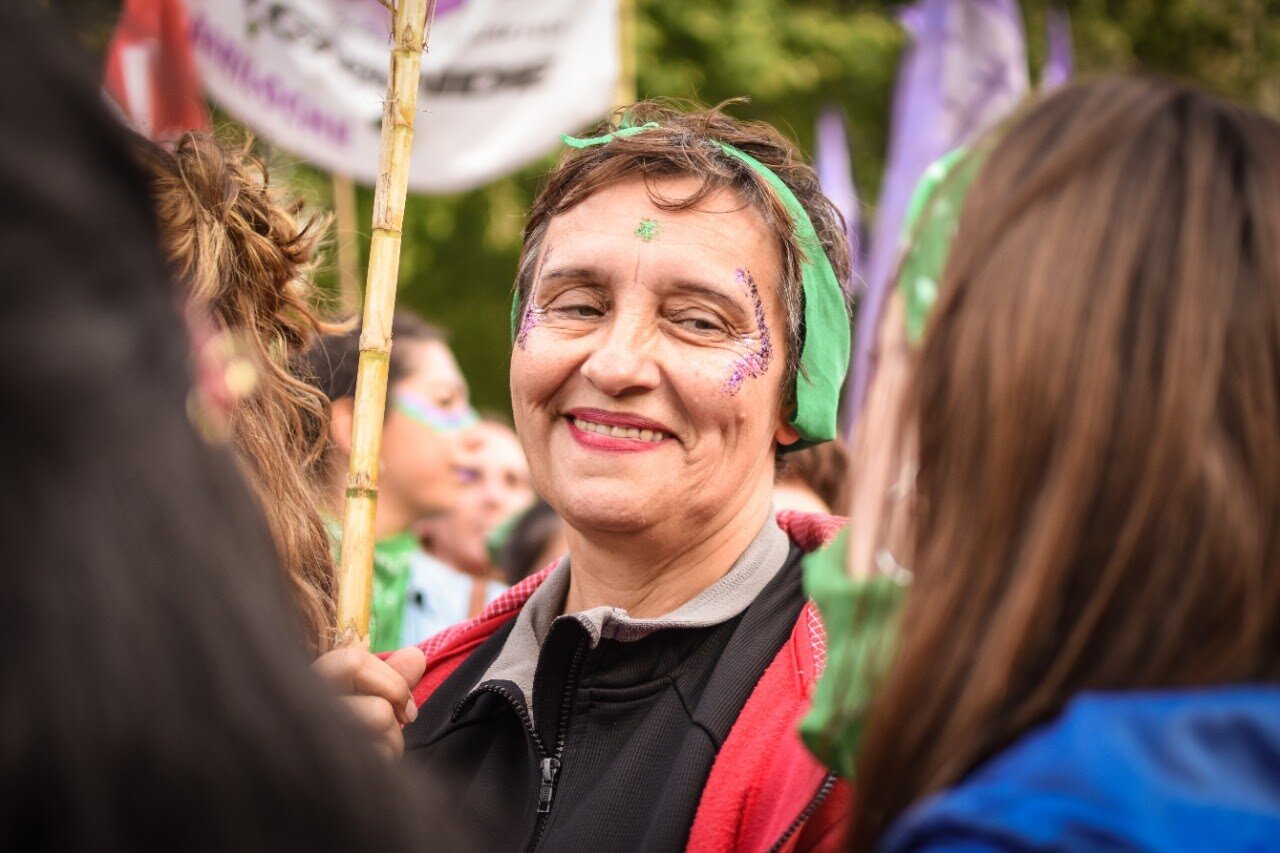Argentina: History Has Been Made
(Disclaimer: La Tonique Media LLC does not represent any political ideology. While we do not espouse any political beliefs, we do seek to provide a balance perspective by incorporating voices from both sides of the political spectrum.)
By Giulia Miraglia
All feminists, human rights activists, grass-root movements and supporters of legalizing abortion will remember Dec. 30, 2020. This is not only an achievement for Argentina, but it also represents a milestone on the road to women’s rights recognition in Latin America and, hopefully, abroad.
The history of the right to interrupt pregnancy in Argentina began in 1886 with the sanction of the first Penal Code, in which all cases of abortion were penalized without distinction. With the reform of the Code in 1903, the first exception was established: cases of attempted termination of pregnancy were not punishable. In 1921, the second reform of the Code was carried out, and in 1922, abortion was no longer punishable when the pregnant woman’s life or health was in danger, when the pregnancy was the result of a rape and when the pregnant woman was mentally disabled.
In 1968, during the regime of the self-styled Argentine Liberation Revolution, Decree Law No. 17,567 came into force, establishing the non-penalization in two cases: when the danger to the life of women was serious, and in any case of rape only after providing enough evidence for prosecution. During the military dictatorship (1976-83), the Code was changed to include more and more restrictions on abortion, making it hard to end a pregnancy - requiring grave conditions to a woman’s health, and the beginning of criminal proceedings in the case of rape.
Only in 1984, the democratic government sanctioned the previous law, which retraced the legal framework to the Penal Code of 1921, where the cases of impunity currently in force were restored. However, the 1922 Penal Code as amended in 1984 did not provide more freedom of choice to women.
It took 28 years for a little step towards a wider recognition of women’s rights. On March 13, 2012, a Supreme Court ruling set a very important decision through the F.A.L. case that allowed the judges to clarify and give a new interpretation to art.86.b. The Court stated that any raped woman, competent or unhealthy, can interrupt a pregnancy without prior judicial authorization or fear of suffering a subsequent criminal sanction.
Finally, the Protocol for the Comprehensive Care of People with the Right to Legal Interruption of Pregnancy - el derecho Interrupción Legal del Embarazo (ILE) - developed by the Ministry of Health of the Nation in 2015, took up the guidelines of the "FAL" ruling. It added considerations regarding the concept of health, incorporating the physical, mental and social aspects, and it clarified that the danger of health can be potential.
In early 2018, a constitutional dialogue about abortion began, and it was carried by feminist groups, NGOs, journalists, health providers, and lawyers finally reaching the national Congress. Years of street demonstrations and political moves followed pushing reproductive rights to the top of the political agenda, breaking certain taboos on sex and opening conversations on rape, harassment and gender-based violence. On Aug. 8, 2018, Argentina’s Senate rejected the bill to legalize abortion in the first 14 weeks of pregnancy and voted 38 against to 31 in favor. The nation was stuck with an old law on abortion, constraining women who wanted to end pregnancies to do it illegally and with unsafe means.
Despite the Senate’s decision, something was changing. Soon after, hundreds of people, women and men, stood outside the Senate in Buenos Aires wearing the emerald green handkerchiefs or pañuelos that have become the symbol of women’s rights, resistance and equality in Latin America.
The center-left president of Argentina, Alberto Fernàndez, elected in October 2019, promised he would move to end the criminalization of abortion and to legalize it once in office.
In November 2020, the president brought a new bill on legalizing abortion to Congress and re-opened a conflictual debate for the traditionally Catholic South American nation. The Legal and Technical Secretary, Vilma Ibarra, said that, according to the most serious estimates, there have been between 350,000 and 370,000 abortions per year made in bad conditions.
Besides, Pr. Fernández also proposed a separate bill called Plan de los mil dìas - a thousand days plan - to help poorer families avoid resorting to abortion for economic reasons. This plan provided a 1000-day insurance policy that will support women during pregnancy and children in their first years of life. The new version of the Abortion Project included the basic consensus on the subject. The bill proposed allowed access to termination of pregnancy up to the 14th week and in the case of rape or danger beyond that time.
Finally, on Dec. 11, 2020, the draft bill, submitted to Congress the previous month by the president, was approved by a margin of 131 to 117 votes. Once Argentina’s lower house passed the bill to allow abortion, it still needed the approval from the traditionally conservative Senate.
The historic vote came after a marathon session that went well past midnight, with 38 in favour and 29 against and one abstention on Dec. 30, 2020. Some senators, who voted against the bill in 2018, changed their minds and favoured free women who are able to decide following their own conscience. The Minister of Women, Genders and Diversity, Elizabeth Gómez Alcorta, wrote on Twitter, “¡ES LEY! La marea verde hizo de esta lucha y de esta militancia una realidad. [...] Estamos escribiendo nuestro destino, estamos haciendo historia.” (“IT IS LAW! The green tide made this struggle and activism a reality. [...] We are writing our destiny, we are making history”). The frequent mass gatherings have had an impact on this fight for safe, legal and free access to abortion that has just become a law.
Giulia is a political writer for La Tonique. You can follow Giulia on Twitter @gm_miraglia.



